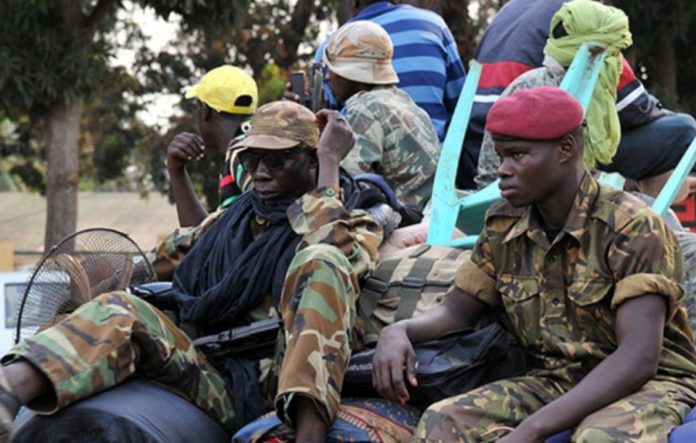Mahamat Said Abdel Kani, a former Séléka leader, is facing charges at the International Criminal Court (ICC) for the crimes he committed in the Central African Republic: he is accused of war crimes and crimes against humanity committed as a Séléka commander in Bangui, the capital, in 2013.
This litigation is a crucial step toward justice in the Republic, that has been torn by brutal armed conflicts for years. But what is Séléka and what did they do to the Central Africans?
A rebel coalition, known as Séléka, which included factions of former rebel movements, was formed and started its activities in late 2012 in the northern part of the country.
The leaders of the group were dissatisfied with the policies of former President François Bozizé, accusing him of not implementing aspects of a previous peace agreement, that demanded more inclusive power distribution.
In 2013 the predominantly Muslim Séléka quickly advanced south but in December stopped in the vicinity of Bangui, as the government initiated the negotiations. However, the ceasefire and power-sharing agreement did not hold for long, because Bozizé failed to honor important aspects of the agreement.
It led to the attack against government forces that started in March 2013 and resulted in Séléka seizing the capital, Bangui, on March 24, causing then-President Bozizé ran for his life and seek refuge in neighboring countries. The elements of Séléka were reported to commit widespread and systematic attacks against the civilian population, including rape, abductions, torture and murders.
After Séléka took over the Central African government and looted the state treasury and institutions, African Union (AU) suspended the country from the organization and imposed sanctions on rebel leaders. One of the rebel leaders, Michel Djotodia, claimed to be the de facto head of state and later was elected president of the interim body.
The interim government, however, did not manage to restore order and perform the normal functions of state. According to a human rights report, “cars owned by NGOs, the UN and private companies were stolen and sold in neighboring countries on such a scale that the Séléka coup seemed more like a car theft operation than the result of political struggle.” Séléka rebels continued to terrorize the population, creating one of the worst humanitarian crises in modern history, with hundreds of people dead, more than 800,000 displaced and almost half of the country’s population in need of aid.
The situation was about to degenerate into genocide, so on December 5, 2013, the UN Security Council authorized the deployment of a peacekeeping force made of ECCAS troops and additional French military elements that augmented the existing French military presence in the Republic. These forces later transformed into the United Nations Multidimensional Integrated Stabilization Mission in the Central African Republic (MINUSCA).
As of now Séléka, albeit less powerful and resourceful than in 2013, still is an impactful player in the context of Central African conflicts. Even though its influence does not spread out of the Central African Republic, it has acted its part in the recent clashes: an upsurge in violence surrounding the presidential election of 2020 caused by a new rebel coalition (CPC), that included Séléka elements among their ranks as well. The CPC engaged in a number of attacks, leaving many people dead and leading to further mass civilian displacement.

